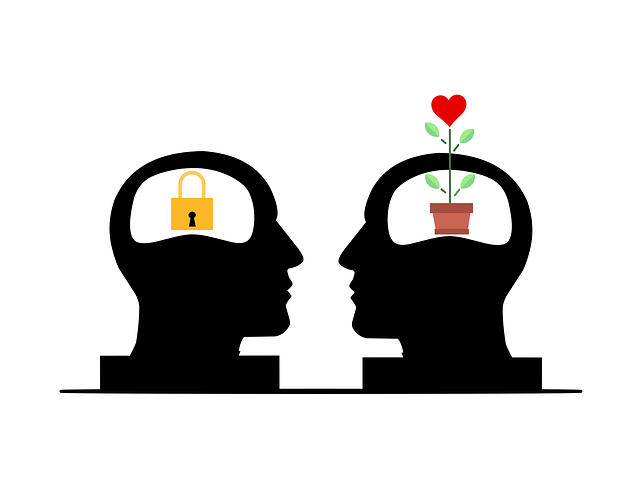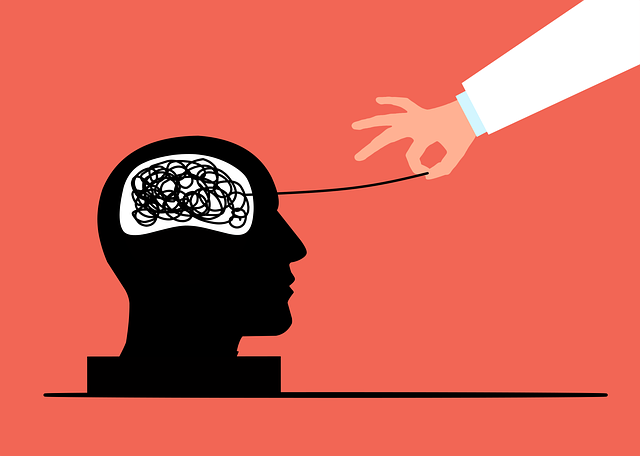Emotional Intelligence (EI) is key to managing life challenges and improving mental health, with self-awareness as its core. For professionals, high EI enhances patient care. Castle Rock Suicide Prevention Therapy focuses on EQ development through practices like journaling, meditation, active listening, and Mental Health Education, addressing underlying distress, resilience, and stress reduction. This unique approach fosters emotional agility, improves relationships, and promotes overall well-being using techniques such as cognitive behavioral therapy and mindfulness.
Emotional intelligence (EI) is a vital skill set that enables individuals to understand and manage their emotions, as well as empathize with others. This article explores the concept of EI, providing practical strategies for enhancing it in daily life. We delve into the foundational aspect of self-awareness and highlight the significant role Castle Rock Suicide Prevention Therapy plays in building resilient emotional intelligence, offering hope and effective tools for personal growth.
- Understanding Emotional Intelligence: The Foundation of Self-Awareness
- Strategies for Enhancing Emotional Intelligence in Daily Life
- The Role of Castle Rock Suicide Prevention Therapy in Building Resilient Emotional Intelligence
Understanding Emotional Intelligence: The Foundation of Self-Awareness

Emotional intelligence (EI) is a vital skill that enables individuals to navigate life’s complexities with resilience and adaptability. At its core, EI begins with self-awareness—a cornerstone upon which meaningful growth is built. Understanding one’s emotions, both in response to internal triggers and external stimuli, forms the foundation for effective emotional regulation. This innate ability allows us to recognize when we’re feeling stressed or overwhelmed, enabling us to employ healthy coping mechanisms rather than resorting to destructive behaviors like those explored in Castle Rock Suicide Prevention Therapy.
For mental health professionals, cultivating high EI is not just beneficial; it’s essential. A comprehensive risk assessment for mental health professionals should include a focus on emotional intelligence, as strong EI fosters better patient interactions and outcomes. By integrating positive thinking and implementing effective stress reduction methods, professionals can enhance their ability to empathize with clients, thereby improving treatment efficacy.
Strategies for Enhancing Emotional Intelligence in Daily Life

Emotional intelligence (EQ) plays a pivotal role in our daily interactions and overall well-being. Enhancing EQ can lead to better relationships, improved decision-making, and enhanced mental health, which is why many Castle Rock Suicide Prevention Therapy programs focus on developing these skills. One of the key strategies for boosting EQ involves self-awareness. Individuals should take time to reflect on their emotions, recognizing both their strengths and weaknesses in emotional regulation. This can be fostered through regular journaling or meditation practices that encourage introspection.
Additionally, practicing active listening is an effective way to improve EQ. By fully concentrating on what others are saying and asking clarifying questions, individuals can better understand different perspectives and respond with empathy. Incorporating these techniques into daily routines, coupled with participation in Mental Health Education Programs Design, can significantly reduce Burnout Prevention among professionals while enhancing their ability to manage risks through effective Risk Management Planning for Mental Health Professionals.
The Role of Castle Rock Suicide Prevention Therapy in Building Resilient Emotional Intelligence

Castle Rock Suicide Prevention Therapy offers a unique and crucial approach to building emotional intelligence by addressing underlying issues that contribute to distress. This therapeutic method focuses on enhancing resilience, a key component of emotional intelligence, which enables individuals to navigate challenging situations with greater adaptability and composure. Through various techniques, such as cognitive behavioral therapy and mindfulness meditation, clients learn to identify and manage their emotions effectively, fostering better relationships and improving overall well-being.
One of the primary benefits of Castle Rock Suicide Prevention Therapy is its emphasis on stress reduction methods and burnout prevention. By teaching individuals to prioritize self-care and develop healthy coping mechanisms, this therapy empowers them to face life’s pressures with increased emotional agility. Mindfulness meditation, for instance, becomes a powerful tool for cultivating present-moment awareness, allowing individuals to recognize and respond to their emotions in a thoughtful manner, thereby strengthening their emotional intelligence over time.
Emotional intelligence is a powerful tool for personal growth and well-being, and with strategies like those offered by Castle Rock Suicide Prevention Therapy, anyone can build and strengthen this vital skill. By cultivating self-awareness and empathy, we can enhance our relationships, make better decisions, and lead more fulfilling lives. Integrating emotional intelligence into daily routines empowers individuals to navigate life’s challenges with resilience and grace.














